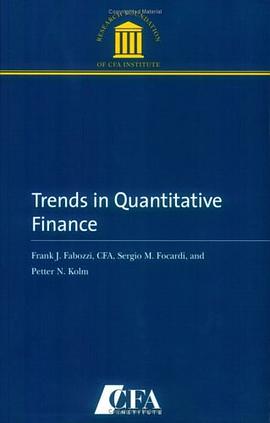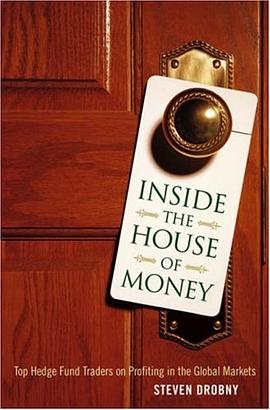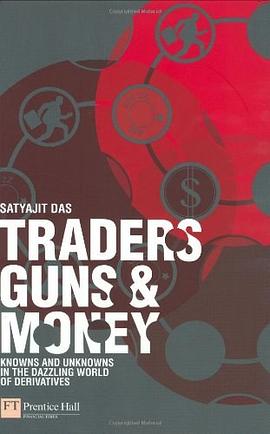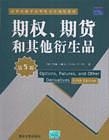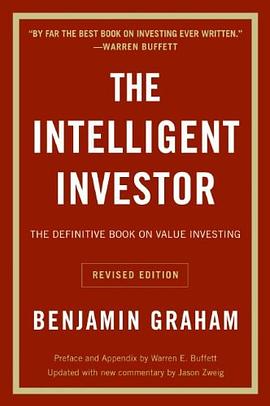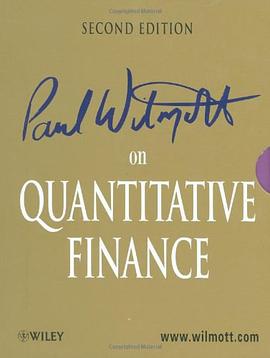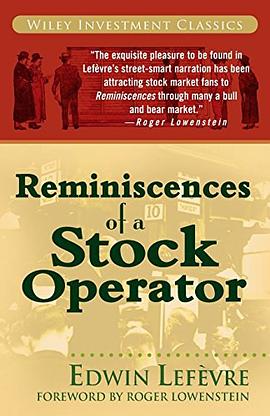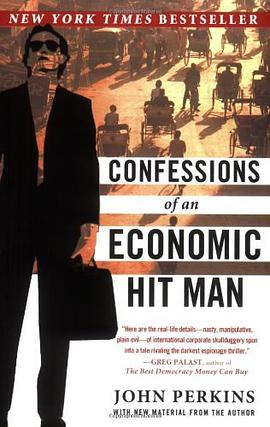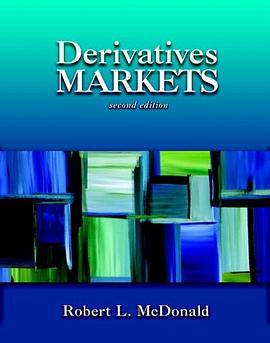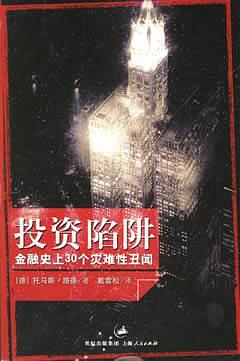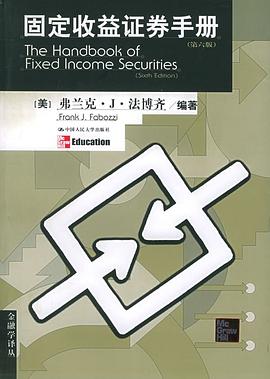

具體描述
《非理性繁榮》書名取自美國聯邦準備理事會理事主席葛林史班 1996 年底在華府希爾頓飯店演講中,談到當時美國金融資産價格泡沫時所引用的一句名言。從那時起,許多學者、專傢都注意到美國股市因投機風氣過盛而引發的投資泡沫現象。
Book Description
In this timely and prescient update of his celebrated 2000 bestseller, Robert Shiller returns to the topic that gained him international fame: market volatility. Having predicted the stock market collapse that began just one month after the first edition was published, he now expands the book to cover other markets that have become volatile, particularly the recently red-hot housing market. He includes a full chapter on domestic and international housing prices in historical perspective.
Shiller amasses impressive evidence to support his argument that the recent housing market boom bears many similarities to the stock market bubble of the late 1990s, and may eventually be followed by declining home prices for years to come. After stocks plummeted when the bubble burst in 2000, investors moved their money into housing. This precipitated the inflated real estate prices not only in America but around the world, Shiller maintains. Hence, irrational exuberance did not disappear—it merely reappeared in other settings.
Building on the original edition, Shiller draws out the psychological origins of volatility in financial markets, this time folding real estate into his analysis. He broadens the evidence that investing in capital markets of all kinds in the modern free-market economy is inherently unstable—subject to the profoundly human influences captured in Alan Greenspan’s now-famous phrase, “irrational exuberance.” As was true of its predecessor, the second edition of Irrational Exuberance is destined to be widely read, discussed, and debated.
Amazon.com
CNBC, day trading, the Motley Fool, Silicon Investor--not since the 1920s has there been such an intense fascination with the U.S. stock market. For an increasing number of Americans, logging on to Yahoo! Finance is a habit more precious than that morning cup of joe (as thousands of SBUX and YHOO shareholders know too well). Yet while the market continues to go higher, many of us can't get Alan Greenspan's famous line out of our heads. In Irrational Exuberance, Yale economics professor Robert J. Shiller examines this public fascination with stocks and sees a combination of factors that have driven stocks higher, including the rise of the Internet, 401(k) plans, increased coverage by the popular media of financial news, overly optimistic cheerleading by analysts and other pundits, the decline of inflation, and the rise of the mutual fund industry. He writes: "Perceived long-term risk is down.... Emotions and heightened attention to the market create a desire to get into the game. Such is irrational exuberance today in the United States."
By history's yardstick, Shiller believes this market is grossly overvalued, and the factors that have conspired to create and amplify this event--the baby-boom effect, the public infatuation with the Internet, and media interest--will most certainly abate. He fears that too many individuals and institutions have come to view stocks as their only investment vehicle, and that investors should consider looking beyond stocks as a way to diversify and hedge against the inevitable downturn. This is a serious and well-researched book that should read like a Stephen King novel to anyone who has staked his or her future on the market's continued success.
--Harry C. Edwards
From The New Yorker
During the past decade, he has emerged as a leader in the new field of "behavioral finance" which seeks to apply lessons learned from other academic disciplines, particularly psychology to economics. Irrational Exuberance is not just a prophecy of doom. Encompassing history, sociology, and biology, as well as psychology and economics, it is a serious attempt to explain how speculative bubbles come about and how they sustain themselves.
John Cassidy
From Library Journal
Taking his book's title and thesis from Alan Greenspan's 1996 description of investors, Shiller (economics, Yale Univ.) studies the current booming U.S. stock market in historical terms. His research into past U.S. and international markets indicates that during every speculative bubble there was always widespread consensus that high valuations were justified by each market's special circumstances. Every large market correction seemed to result from popular consensus rather than specific events or news. Shiller says that past bull and bear markets, though often based initially on sound fundamental reasoning, fed upon themselves to go beyond what the facts justified. He challenges the efficient market theory, demonstrating that markets cannot be explained historically by the movement of company earnings or dividends. He concludes that the current U.S. stock market is a speculative bubble awaiting correction. While the book certainly belongs in all academic business collections, public libraries should also purchase it as a counterweight to the plethora of get-rich-quick investment guides.
-Lawrence R. Maxted, Gannon Univ., Erie, PA
From The New York Times Book Review
No one has explored the strange behavior of the American investor in the 1990's with more authority, or better timing, than Robert J. Shiller.
Louis Uchitelle
About Author
Robert J. Shiller is the Stanley B. Resor Professor of Economics at Yale University. He is the recipient of the 2000 Commonfund Prize, awarded for Best Contribution to Endowment Management Research, for Irrational Exuberance. He is also the author of Market Volatility and Macro Markets, which won the 1996 Paul A. Samuelson Award.
Book Dimension :
length: (cm)23.3 width:(cm)15.4
著者簡介
Robert J. Shiller is the Stanley B. Resor Professor of Economics at Yale University. He is the recipient of the 2000 Commonfund Prize, awarded for Best Contribution to Endowment Management Research, for Irrational Exuberance. He is also the author of Market Volatility and Macro Markets, which won the 1996 Paul A. Samuelson Award.
圖書目錄
讀後感
在巴菲特都极为推崇的投资书籍《投资最重要的事》中谈及投资的钟摆理论,即市场一定是不断在牛熊之间转换,市场波动循环往复、永不停止。这就为在熊市买入,牛市卖出股票获利提供可能,因此投资不仅要参与填坑的阶段,价值投资倡导熊市中我们用废铁价买黄金以及通过基本面“捡...
評分罗伯特.希勒的《非理性繁荣》对整个美国股市和楼市的梳理,论据充分、有条有理,不愧是大学问家的作品。而我越发觉得“地球上没有新事物”。一个对美国经济了解深刻的人对于世界其他地方的类似现象应该很容易把握,当然也越容易利用机会赚取财富。反推之,如果想了解当今中国的...
評分读过此书的人建议结合以下两本《伟大的博弈》,《不确定状态下下的判断启发式和偏差》 《非理性繁荣》--抛开现象看本质,对冲基金的必修课本。 《伟大的博弈》--展示美国百年金融发展历史,波澜壮阔。 《不确定状态下下的判断启发式和偏差》--更加微观的揭示人类与生俱来的行为...
評分如果让我对我现在所学的金融学说点什么,我只想说学这个专业的学生都是在尝试让自己的理性战胜自己的非理性。 当教科书上告诉我们,亚当斯密爷爷说的,我们都是理性的经济人,我们像趋利避害的草履虫一样。可真的如此吗?希勒教授告诉我们,我们恶性的自大让人类成了非理性的...
評分下面是我曾经写的book report,感兴趣的朋友可以拿此书来看。 我简单说说这书, 作者对于美国房产经济做了一番研究,此书有详细的对于次贷以前类似房产经纪引发的经济问题的研究。很多facts.从此你看书美国如何房地产经济的发展轨迹。 此书对于权威毫不吝啬的批评,认为次贷一...
用戶評價
行為經濟學讀物。做股票投資的人可以以史為鑒,重新審視自己的投資觀念。
评分第一本讀完的英文書
评分房價瘋得讓人想看書。。。
评分爽哥推薦
评分整個理論架構很簡單,從precipitating factors到amplifying mechanism。最後一章提齣的措施在我看來顯得很無力,人的貪婪是其中最難以跨越的障礙。
相關圖書
本站所有內容均為互聯網搜索引擎提供的公開搜索信息,本站不存儲任何數據與內容,任何內容與數據均與本站無關,如有需要請聯繫相關搜索引擎包括但不限於百度,google,bing,sogou 等
© 2025 book.quotespace.org All Rights Reserved. 小美書屋 版权所有

